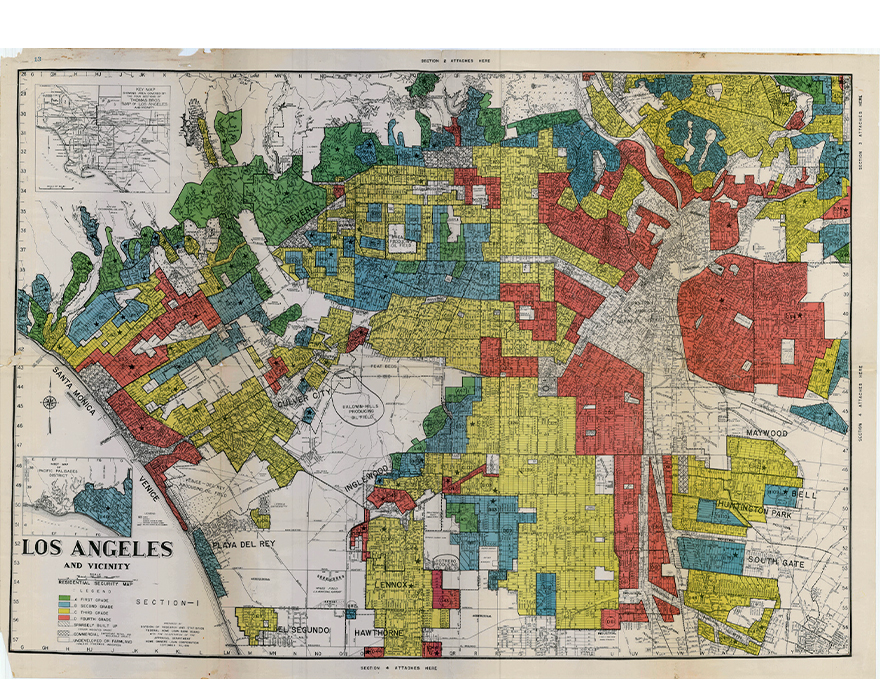Financial Legacies: Slavery and the History of Banking
A redlining map of Los Angeles in 1939.
Register: http://socs.ci/1619financiallegacies
Moderator:
- Keaanga-Yamahtta Taylor (Princeton)
Speakers:
- Bill Maurer (Social Sciences)
- Peter Hudson (UCLA)
- Mehrsa Baradaran (UCI Law)
This event is 60 minutes and will include a Q&A session. For those who are interested, please stay for a bonus 30 minute facilitated discussion.
Discussion Facilitators:
- Tonya Bradford (Business)
- Mrinalini Tankha (Portland State University)
Suggested Podcast/Readings:
- Matthew Desmond, “If you want to understand the brutally of American capitalism, you have to start on the plantation,” The 1619 Project And Photo essay by Dannielle Bowman; text by Anne C. Bailey
- Mehrsa Baradaran, "Mortgaging the Future," p. 32; "Good as Gold," p. 35; and "Fabric of Modernity," p. 36
- Tiya Miles, "How Slavery Made Wall Street," p. 40
- Trymaine Lee, “A vast wealth gap, driven by segregation, redlining, evictions and exclusion, separates black and white America,” The 1619 Project
- 1619 Podcast 2: The Economy that Slavery Built
To read the 1619 Project, see: www.pulitzercenter.org/sites/default/files/full_issue_of_the_1619_project.pdf
To access the podcasts, see: https://guides.lib.uci.edu/oceanproject
The 1619 Project in 2020
The 1619 Project, published by the New York Times, retells the history of the U.S. by foregrounding the arrival 401 years ago of enslaved
Africans to Virginia. Through a series of essays, photos, and podcasts, the 1619 Project
charts the impact of slavery on the country’s founding principles, economy, health
care system, racial segregation of neighborhoods and schools, popular music and visual
representations. Conversations around the 1619 project have served as a flashpoint
for intensive ideological debates about its content and impact. It has been both widely
lauded and subjected to critiques from academics, journalists, pundits and policymakers
who challenge its accuracy and its interpretation of history. Conservative politicians
even seek to defund schools that teach the project. What is the power of the 1619
Project to reframe our understanding of U.S. history and our contemporary society?
How might we go beyond the 1619 Project to develop an even fuller understanding of
the centrality of slavery and race in the U.S. and in the broader Atlantic world?
Join us for month plus exploration of The 1619 Project, which culminates in the visit
of Nikole Hannah-Jones, the Pulitzer Prize winning author of the project.
The 1619 Project series is presented by UCI Humanities Center and is co-sponsored
by: UCI Illuminations: The Chancellor’s Arts & Culture Initiative, School of Humanities,
Claire Trevor School of the Arts, School of Education, School of Law, School of Social
Sciences, UCI Libraries, Academic English, Composition Program, Center for Latin American
Studies, Center on Law, Equality, and Race, Center for Medical Humanities, International
Center for Writing and Translation, Literary Journalism and Center for Storytelling,
Office of Inclusive Excellence, Student Affairs, Staff Assembly, AAPI Womxn in Leadership
and Academic and Professional Women of UCI.



connect with us: